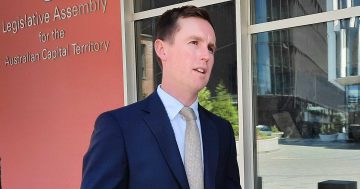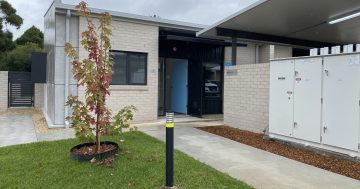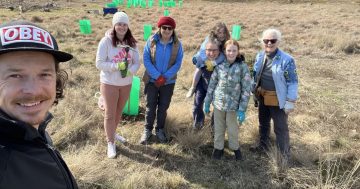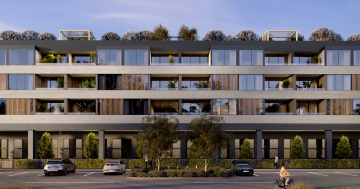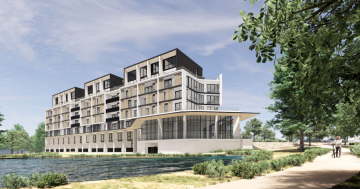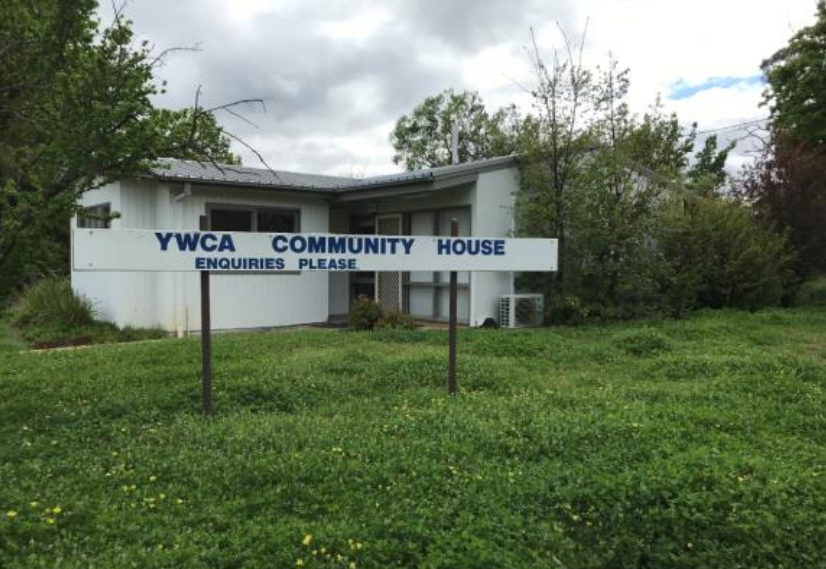
The site in Rutherford Crescent, Ainslie, where supportive housing for women is proposed. Photo: File.
YWCA Canberra has accused community groups of weaponising the appeals planning process and gaming the system to thwart desperately needed social housing proposals.
In a submission to the planning system review, YWCA Canberra calls for third parties to be barred from appealing against approved social and community housing development applications that have undergone consultation and met the approval process requirements.
It also wants social and community housing to be deemed “territory priority projects”.
The feminist not-for-profit organisation has run into staunch community opposition in Ainslie, where it plans to build supportive housing in Rutherford Crescent for women in need.
YWCA Canberra first lodged a development application in 2020, which the planning authority approved in 2021, only for the decision to be overturned in the ACT Civil and Administrative Tribunal.
It lodged new plans for a slightly reduced development in March after the planning authority made technical changes to rules that substantially removed the opportunity to argue the proposal had inadequate solar access and not enough parking.
Without referring directly to its Ainslie proposal in the submission, YWCA Canberra takes aim at time-rich and well-resourced residents with disproportionate influence who delay or scuttle proposals that will help ease the ACT’s housing crisis.
“We have seen firsthand how planning and development regulations and the appeals process can be weaponised by those with time and resources who concentrate their efforts against new housing developments, particularly social and supported housing,” it says.
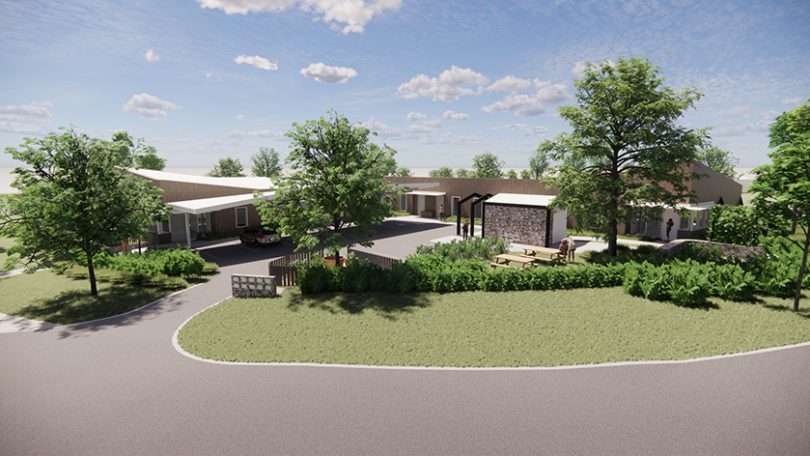
Artist’s impression of YWCA’s original proposal for Rutherford Crescent in Ainslie. Image: AMC.
YWCA adds that the ACT’s unique position as a no-cost jurisdiction and its low application fees feed the potential for vexatious actions with limited, if any, financial consequences for applicants, while organisations with limited budgets and without in-house legal expertise face rising costs and delays to proposals.
YWCA Canberra warns that continuing a carte blanche approach to appeals could deter much-needed housing proposals.
“If limitations for third party appeals are not given proportional consideration, so as to remove the prospect of purely vexatious litigation, sensible residential housing proposals catering particularly to the community or social housing sectors will be subject to routine and costly objections heightening the risk attached to pursuing such housing developments and jeopardising the sector’s willingness to contribute to new supply,” it says.
YWCA Canberra also warns against the unintended consequences of including social outcomes, such as wellbeing and recreation, and terms such as “special heritage and historical significance” in the Planning Bill, saying they could encourage vexatious objections.
“Our experience with pursuing a supported housing development on land we own … has seen us forced to counter repeated claims of ‘heritage’ and ‘cultural significance’ in relation to a temporary building structure and non-native suburban trees,” it says.
“Such disingenuous claims should not be considered in the spirit of the reforms and should be mitigated against in the drafting where possible.”
YWCA Canberra also backs the move to declaring ‘territory priority projects’, with the Chief Planner assuming the call-in powers of the Minister.
“We also support the plan to include projects that are of significant benefit to the people of the ACT’ (s212) as ‘territory priority projects’ and urge that social and community housing be considered a priority under this category,” the submission says.












